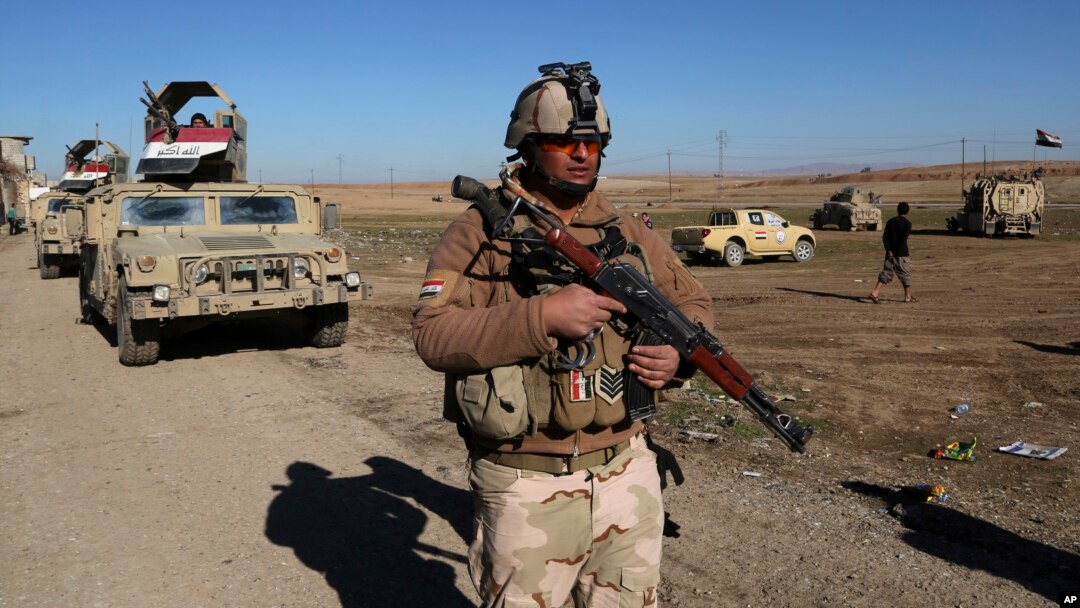The Iraqi government says its security forces have taken complete control of eastern Mosul from the Islamic State group, more than 100 days after the fight for Mosul began in October.
IS fighters are now pushed into west Mosul and have lost control all five bridges crossing the Tigris River, Mosul University and the Nineveh Ruins.
"This great accomplishment was achieved by the unity of Iraqis and their support to the security forces," Prime Minister Haider al-Abadi said. "Now I invite our brave forces to move quickly to liberate the rest of the Mosul."
He praised what he called the "heroic efforts" of the country's army, police and counterterrorism forces, as well as Peshmerga fighters and volunteers.
“This is a monumental achievement for not only the Iraqi security forces and sovereign government of Iraq, but all Iraqi people,” said Lt. Gen. Stephen J. Townsend, the commanding general of the international counter-IS coalition in Iraq.
Townsend added that the fight for western Mosul will likely “be even tougher than the eastern side.”
However, Pentagon spokesman Navy Capt. Jeff Davis told reporters Monday IS had lost many abilities and “a lot of their best fighters” in east Mosul.
Iraqi security forces fought off an average of five vehicle-borne explosives per day and saw daily mortar and sniper attacks, according to U.S. Central Command, which oversees the counter-IS operation in Iraq and Syria.
The terror group also used commercially-made drones to surveil Iraq-aligned forces and drop grenades on them.
Last week, Staff General Talib al-Shaghati, who commands the Iraqi counterterrorism forces, said the eastern section of Mosul had been “liberated” from IS jihadists.
Now, the army’s attention will turn to Mosul’s western half, where the United Nations said Tuesday it is “deeply concerned” for 750,000 civilians who could be in danger.
U.N. human rights commission spokeswoman Ravina Shamdasani said IS militants are basing themselves in civilian areas near hospitals and schools, and using children and other civilians as shields against coalition airstrikes.
VOA's Josh Fatzick contributed to this report.



